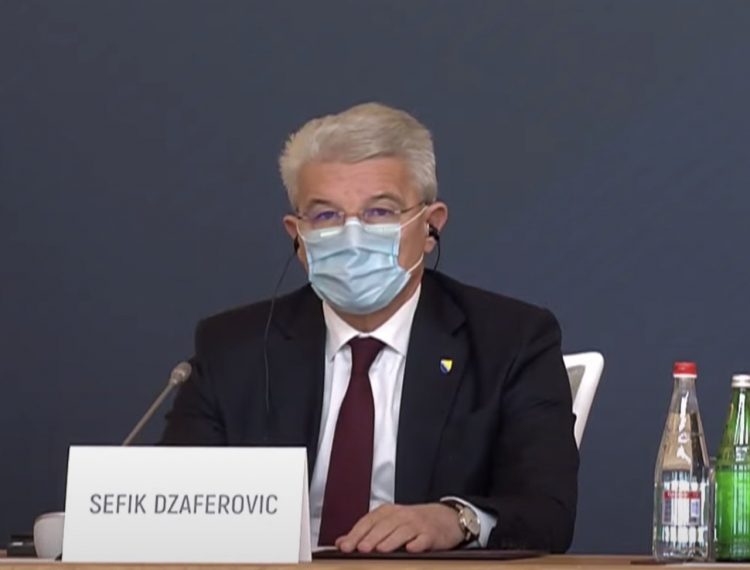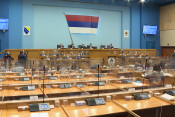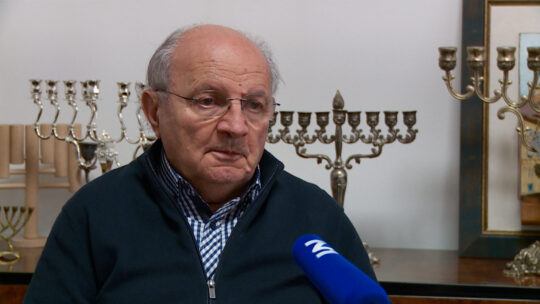
“Irresponsible politicians” from Bosnia’s Republika Srpska (RS) entity are threatening to destroy state institutions and this puts all the progress the country has made since the war, as well as peace itself, into question, BiH Presidency member Sefik Dzaferovic said at the VIII Global Baku Forum.
Dzaferovic, the Bosniak member of the tripartite Presidency, spoke at the VIII Global Baku Forum – “The World after COVID-19” on Thursday.
The pandemic changed the world and although the health crisis is not over yet, there seem to be new crises emerging, he said, arguing that entire parts of the world are facing shortages of food, electricity and gas.
“We are witnessing a crisis in international supply chains. And on top of all that, new security crises are emerging, from the Pacific to Europe. The climate and migrant crises began before the pandemic, and it is quite certain that next year will be marked by them as well,” Dzaferovic said.
“In addition to material crises, our time is also marked by a crisis of ideas. We live in a time without great ideological narratives. Universalist movements, which aspired to various forms of emancipation and the struggle for human rights, were not accompanied by the kind of enthusiasm we witnessed in the previous or at the beginning of this century,” he said.
He noted that another crisis the world is facing is that of multilateralism.
“Instead of uniting, the world closed up and divided at the very beginning of the pandemic. And the only response to a pandemic – since it knows neither nations nor states nor continents – is joint action around the world, through multilateral mechanisms.”
“It is of the utmost importance that the international community, through multilateral mechanisms and actions, resumes adequate efforts to establish peace and protect basic human rights for people in burning crisis hotspots, from Syria, Libya, to Yemen and Kashmir,” he said.
Dzaferovic also commented on the European Union, saying that, over time, it “established itself as a global symbol of a community of security and prosperity” and a “model for the surrounding regions and countries” which it gradually integrated.
However, the EU has not expanded in eight years, the BiH Presidency member noted.
“Furthermore, with the exit of Great Britain, the Union was left without one of its larger members. Also, the European Union has experienced lively internal debates in recent years, and voices are increasingly being heard demanding that it be structured as an economic interest-based, not a value-based community, which is best shown through the current discussion on the rule of law,” he said.
Dzaferovic stressed that he is deeply convinced that enlargement to the Western Balkans is the best way for the European Union to gain new strength and energy.
“I am equally convinced that the Western Balkans will reach its full potential only after integration into the European Union. Although the countries of the Western Balkans, including Bosnia and Herzegovina, show a strong aspiration towards the European Union, it is quite clear that the enlargement of the European Union to the Western Balkans is at a standstill, and in the short term it is difficult to expect any of our countries to become members.”
This lack of a European perspective is causing destabilising effects in the Western Balkans, he said.
“Instead of a common path to a European future, the spirits of the past are returning to the region,” he said, adding that some are warmongering in the region and threatening to change state borders.
Despite many obstacles, Bosnia and Herzegovina managed to make significant progress in the past 26 years, he said.
“Based on the Dayton Accords, state institutions have been established. The unified Armed Forces of Bosnia and Herzegovina were formed, consisting of members of all ethnic groups. A joint intelligence service, judiciary, tax system and numerous other institutions have been established. Thanks to these institutions alone, peace has been preserved in Bosnia and Herzegovina even after the withdrawal of about 60,000 international troops,” he said.
But now, all of this progress, as well as peace in the country, is being put into question, according to Dzaferovic.
“Irresponsible politicians from the part of Bosnia and Herzegovina, which is called Republika Srpska, are threatening to destroy the mentioned state institutions. The Republika Srpska entity has the highest coronavirus mortality in Europe. In order to avoid facing this problem, the authorities of that entity have put the country in a state of the greatest security crisis since the end of the war,” he said.
“The announcement by the Republika Srpska authorities that they will attack the barracks of the Armed Forces of Bosnia and Herzegovina is an alarm for vigilance and caution. State institutions will defend the constitutional order of Bosnia and Herzegovina. We defended our country from aggression in the period 1992-1995. We are ready to defend it again, if necessary. I hope we will not get into that situation, but our determination is the best contribution to preserving peace. Indulgence has never been a friend of peace because it encourages bullies,” he added.






Kakvo je tvoje mišljenje o ovome?
Budi prvi koji će ostaviti komentar!